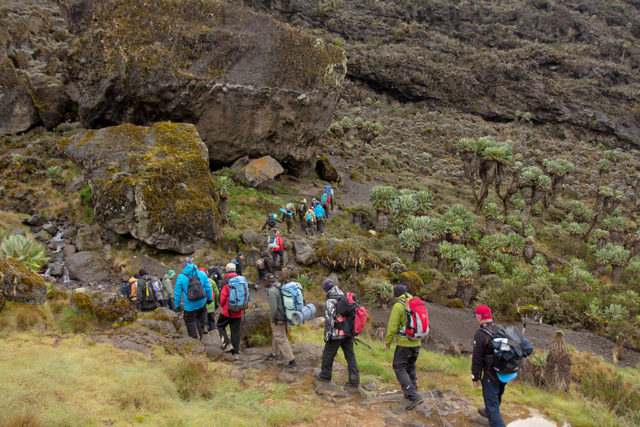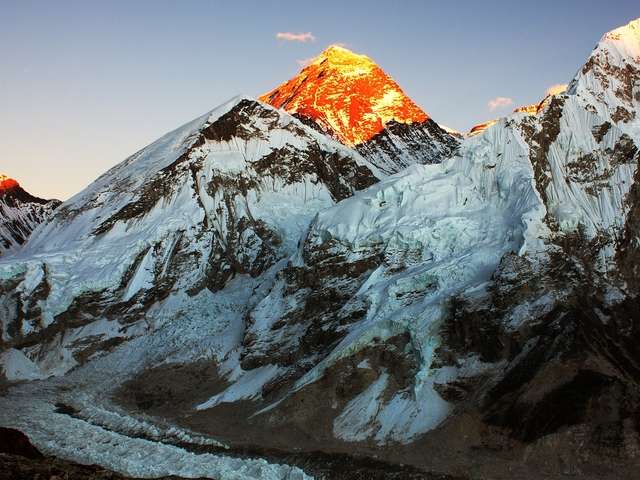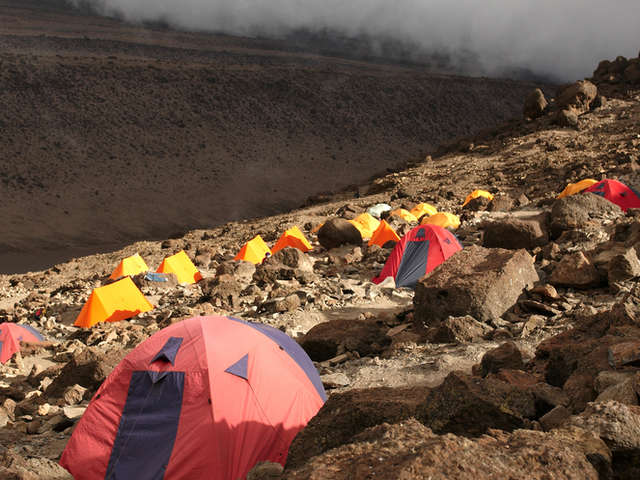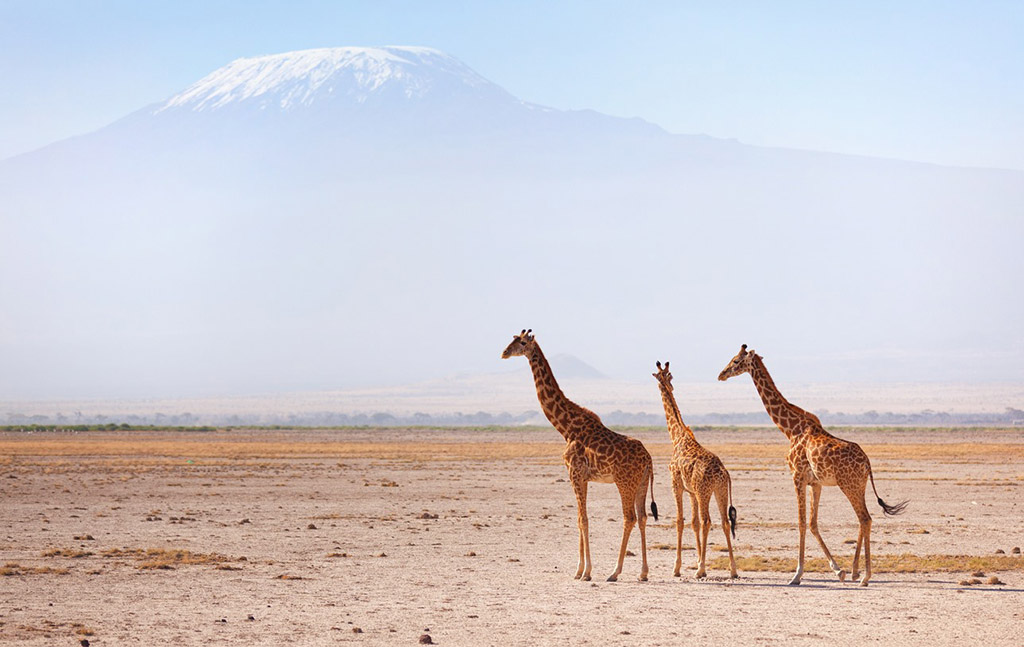
There are few harder jobs than being a porter on Kilimanjaro, and the history of the tourism industry in Tanzania unfortunately began with unsafe practices that left many porters and guides injured and unable to support their families. These practices created an unsustainable and unsafe environment for everyone working on the mountain
Over the past 20 years much of that has changed, but it is the
responsibility of everyone on the mountain to do their part to continue
this progress. The Tanzanian government has negotiated and implemented
strict regulations to protect guides, porters, and climbers. The
Porter’s Association, Guide’s Association, Tourism Board, and Tanzanian
Park Service have established clearly defined practices for safe and
responsible climbing that have dramatically improved the environment on
Kilimanjaro.
It is the responsibility of everyone on the mountain to continue these practices and advocate for safe and sustainable climbing for tourists and staff. AdventureHero has played a part in these changes and continues to advocate for the well being of our staff. Here are a few of the biggest changes we’ve seen in the years we’ve been working on Kilimanjaro.
Tanzanian Government Regulations and Requirements
In the past 15 years the Park Service has put in place many
requirements for tour operators to ensure the safety of staff on the
mountain. They have established strict penalties for any operator that
has been found to circumvent them, including: fines, revoking their
license, and even criminal prosecution.
These steps have had a huge impact in the quality of life and safety
our staff find on the mountain – but they are just the beginning. These
are the bare minimum that needs to be done to provide a fair, safe, and
sustainable climbing industry on Kilimanjaro. These regulations include:
Weight Restrictions for Porter Loads
No porter is allowed to carry more than 15 kg into the park. Every
piece of equipment and all supplies carried by porters are weighed and
tracked by the Park Service multiple times throughout the climb and upon
exiting the park. Before entering Kilimanjaro National Park every
porter’s bag is weighed, then again at the first campsite and again at
the exit gate. Rangers in later camps will visually inspect porter
loads and can require a weigh in at any time. These restrictions have
greatly reduced the incidence of injuries among porters, who previously
might carry 30 or more kgs on the difficult climb to Uhuru Peak.
AdventureHero provides each guest with a standard duffel bag and proactively manages porter loads and weight distribution. We send large teams to the mountain to ensure every porter is carrying a safe, well balanced load. On average our porters carry 10 – 12 kg, rather than the limit of 15 imposed by the Park Service.
Gear and Equipment Requirements
In the negotiated agreements between the Park Service, the tour
operators, and the Porter’s and Guide’s Associations certain
responsibilities were delegated to each group to ensure the safety and
sustainability of the climb. One of these was the responsibility to
ensure everyone on the mountain had the equipment needed to make the
climb safely, which is shared between tour operators and porters.
The Park Service inspects the equipment of every porter and guide
during the registration and weigh in process at the Gate. If any porter
is missing essential gear, such as warm clothes, boots, rain ponchos, or
a sleeping bag, the Park Ranger will not issue them a permit and the
porter cannot make the climb. Under the Park Service regulations this
equipment is the porter’s responsibility, which can become a barrier to
finding or maintaining regular work.
AdventureHero has built an inventory of gear set aside specifically for our porter teams, which we expand every season. Warm clothes, rain gear, and tents are all available for our porters to use, free of charge. We do our very best to make sure every member of the AdventureHero team goes on the mountain prepared to safely help our guests reach the summit, and come down again healthy.
Food and Safety
For many years there were reports of tour operators sending porters
and other staff with only 1 meal per day during the climb, not providing
adequate tents, and other unsafe practices that put the guide and
porter teams in unnecessary danger. Now, the Park Service weighs the
supplies being taken on the mountain to assure that there is enough food
for every member of the team throughout the climb. They assess the
tents and equipment in the camps, and if damaged or inadequate equipment
is found they require the tour operator to send a replacement
immediately, or the Rangers might end the climb and revoke the
operator’s license.
AdventureHero provides every member of our climb team with 3 nutritious meals each day, without exception. Depending on the itinerary and weather conditions these may be packed lunches or hot meals at the campsite, but our porters do not go hungry. Period. We send every team with tents and sleeping bags appropriate for the season, as well as ensuring they have access to warm weather clothes and other safety equipment they may need. We care deeply for the safety of our team and work hard to ensure it.
Transparent and Timely Pay
The Park Service requires all tour operators sign transparent wage
agreements with every member of their team, clearly defining the wages
they will receive for the duration of the climb. These agreements are
filed with the Park Service upon registration for the climb and can be
audited along with the operator’s tax filings to ensure compliance with
the agreed standards.
The Park Service has set a standard minimum wage for each position on the climbing team from a first time porter to a highly experienced head guide. These wages are built with the cultural expectation of tipping found on Kilimanjaro (see: Tipping on Kilimanjaro).
AdventureHero has taken this one step further. Every member of our team signs a pay agreement before each trip, and is paid by direct bank transfer the day the climb ends. By the time they get back from the mountain their wages are available in their bank account. We chose this method for two reasons: first, it is the most transparent way for us to manage the staff’s wages – it is easy to verify work dates and compensation for each and every member of our team. Second, it provides stability for our staff, as they can rely on the funds being there for them and their families as soon as they finish the climb. We make every effort to exceed the requirements put in place by the Tanzanian Park Service, as we believe they are the basic level needed to provide a sustainable career for our team. We always seek to go one step further for our team.
Building Careers on the Mountain
In Tanzania working on Kilimanjaro is a sought after table job for
many, and becoming a guide is a highly competitive and lucrative career.
It is one that nearly every porter aspires to, though the journey to
getting licensed and certified is difficult.
Most porters are often unable to do so due to poor English language
skills and a lack of opportunity to develop them. Attending college and
becoming certified by the Tanzanian Park Service requires solid English
language skills that are very hard to develop in the Swahili speaking
communities of Tanzania. Even for those who can afford the school fees,
many have families and other financial responsibilities that make it
impossible for them to take the time away from work to do so.
We know we have the best team on the mountain, and we’ve built that
team by investing in our team consistently over the years. We work hard
to help our porters realize these dreams. We have established a
scholarship fund to send our best porters to local English training
courses each year. This includes both their tuition and a stipend so
they can focus on their studies without sacrificing their income.
Our porters are passionate and hard working. We know that given the opportunity they will become the best of the next generation of guides on Kilimanjaro. Their safety and health is an absolute top priority for us, and we seek to do everything we can to enable them to pursue these dreams and built lasting careers.

















